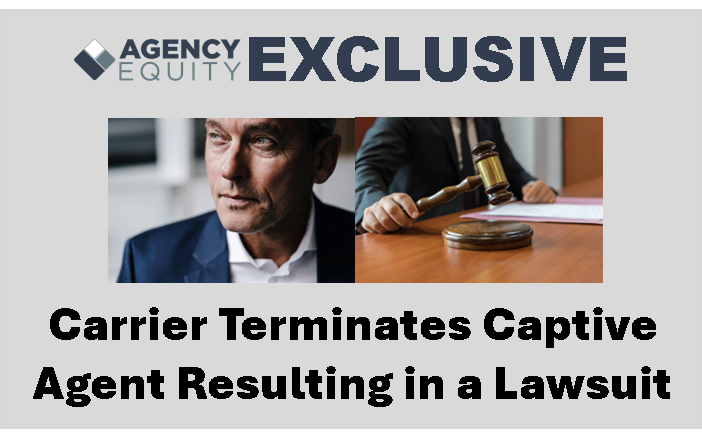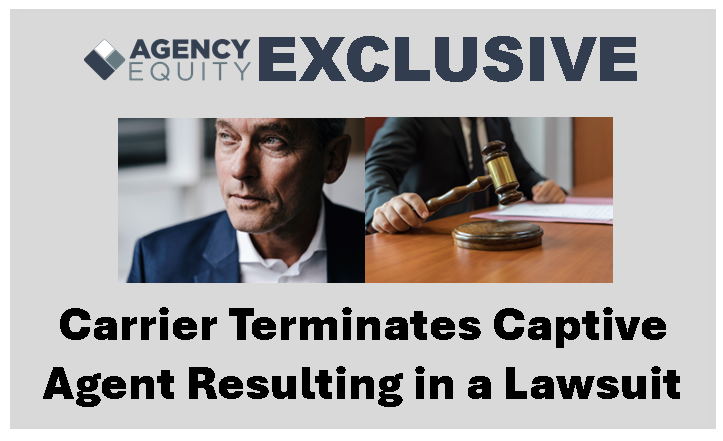
After a captive agent’s contract was terminated by the carrier, he accused the carrier of blocking the sale of his agency to qualified buyers and of forcing him to sell the rest of his business at a loss. A drawn-out court battle ensued.
The Louisiana agent was originally an employee of the carrier, joining them in 1990. Ten years after that, the carrier converted all agent employees to independent contractors and required them to sign exclusive agency agreements. The agent signed the contract at the time and a revised one in 2013.
In March 2021 the carrier notified him that it was terminating his contract effective in June. There are five separate court opinions published regarding this matter, and none of them explain why he was terminated. However, he claimed that he was terminated without just cause.

He also claimed that the carrier refused to consider “two objectively qualified potential buyers” for his book of business. Instead, he claimed, they improperly transferred his interest in the book to another agent. Further, he had a book of flood and Fair Access to Insurance Requirements (FAIR) plan policies that were not written with this carrier. According to him, the carrier would not permit him to manage the flood policies and he was forced to sell the book for below market value.
He sued the carrier, two of its employees, and the agent who received his book of business. Between August 2022 and November 2023, a court had to resolve several disputes involving which court had jurisdiction, whether some of his charges should be dismissed, emergency appeals, limits on the topics of discovery, and the case itself. In October 2022 the judge dismissed all his claims except for the claims of unfair trade and fraud related to the flood and FAIR plan business.
Finally, in November 2023 the court granted summary judgment in favor of the carrier, meaning that the facts were not in dispute and the law favored the carrier.
He had claimed that the carrier misrepresented the terms of their agreement by telling him he could not manage the book of flood business after termination. They also notified his customers that he would no longer be servicing the flood and FAIR plan policies. He claimed that the carrier made up a 30-day deadline for him to decide what to do with the book, but the judge found evidence that the deadline was in the manual rules he had agreed to. Further, he ruled that the contract did not give him the right to manage the policies after termination.
“Plaintiff chose to sell his flood book of business rather than transfer or rewrite these policies,” the judge wrote, ”and by doing so, Plaintiff voluntarily gave up his commission interest in his flood book. Although Plaintiff may be unhappy with his compensation for these policies, he cannot point to any instances of (the carrier) or any of its agents lying to him about his options regarding his flood book.” He also found that the agent had not produced any evidence in support of his other claims of unfair practices and fraud.
It appears that this carrier honored the letter of its contract with the agent. We do not know why he was terminated after 31 years with the carrier, and the split was apparently a bitter one, but he could not prove any failure to honor the contract.
Any captive agent in this situation should expect the carrier to do what is necessary to comply with its contract, but no more. Also, there must be solid documentary evidence of any alleged contract violations, or the case will not succeed. This agent had a weak case and accordingly lost.











